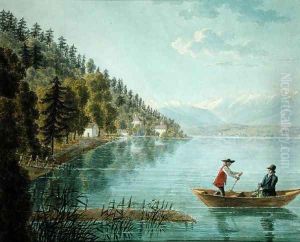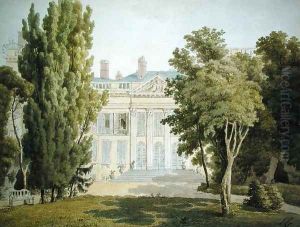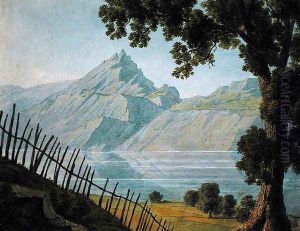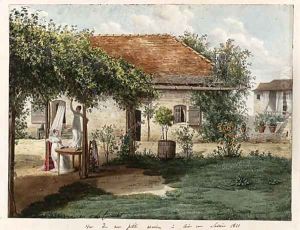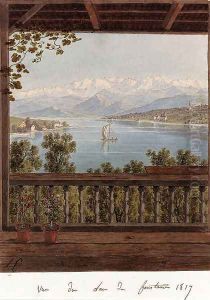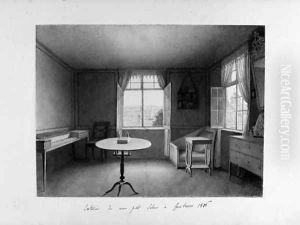Louise Cochelet Paintings
Louise Cochelet was a French painter and writer, born in 1813 and passing away in 1895. Although not as widely recognized as some of her contemporaries, Cochelet's work and contributions to the art world during the 19th century provide insight into the roles and challenges of female artists during this period. Her life and career were marked by her dedication to her art and her involvement in intellectual circles that included some of the notable figures of her time.
Louise Cochelet's early life was shaped by her passion for art and literature. Despite the limited opportunities available to women in the arts during the 19th century, she pursued her interests with vigor. Cochelet was known for her portraits and genre paintings, works that captured the essence of her subjects with sensitivity and depth. Her style reflected the artistic movements of her time, yet she maintained a distinct voice that set her apart from her peers.
Beyond her contributions to painting, Louise Cochelet was also deeply involved in literary circles. She was a friend and confidante of several prominent writers and intellectuals, which often inspired her work. Cochelet's writings, though less known than her paintings, reveal a keen insight into the artistic and cultural debates of her time. She wrote essays and letters that discussed the role of women in the arts, advocating for greater recognition and opportunities for female artists.
Despite facing the challenges common to women in the arts during the 19th century, including societal restrictions and limited access to formal training and exhibitions, Cochelet managed to carve out a space for herself and her work. She exhibited her paintings in various salons and galleries, gaining respect and admiration from her contemporaries.
Louise Cochelet's legacy is that of a talented artist and thinker who navigated the complexities of her era with grace and determination. Her life and work continue to inspire those interested in the history of women in the arts, serving as a testament to the enduring spirit of creativity and the fight for recognition in a male-dominated field.
